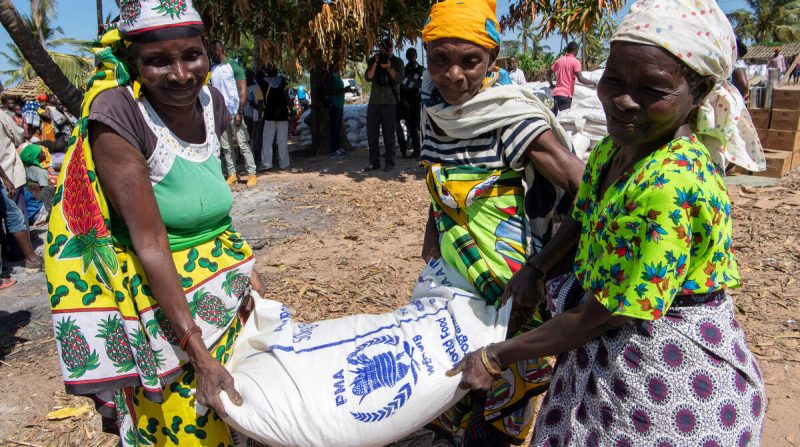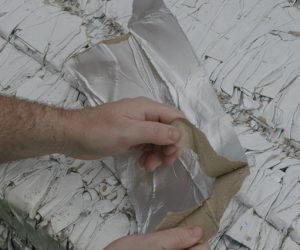

Design and prototyping of alternatives to Polypropylene bags
Humanitarian organisations provide critical relief items such as food and other essential commodities to some of the most vulnerable and marginalised communities in the world. The life saving work they do requires procurement, storage, movement and delivery of huge quantities of products, much of which comes in individual packaging made from plastics like polypropylene (PP) or polyethylene (PE).
To put in perspective the volume of packaging handled, in 2018, the ICRC dispatched 150 tonnes of PP bags around the world while WFP distributed a minimum of 64 million bags (or 6 500 tonnes) of PP bags with the food they distributed. In the same year, the UNHCR utilized PP packaging for non-food commodities amounting to nearly 150 tonnes.
While beneficiaries often reuse the packaging material that comes with relief items, there is often no end-of-life management systems where they live, leading the packaging material to be dumped into the environment where it slowly breaks down into microplastics. In order to address this environmental concern, three humanitarian organisations – the ICRC, UNHCR and WFP – have come together to develop and implement a project that looks into potential alternatives to the packaging they use – specifically for woven PP bags which are used to pack items such as staple food, blankets, mosquito nets, etc.
Since 2021, Sofies SA, an environmental sustainability consultancy based in Geneva and a part of the dss+ family, has been working with the partner organizations to identify potential alternatives to PP bags. Four potential solution categories have been identified based on a multicriteria assessment study:
- Improved PP with longer lifetime
- Recycled PP
- Cellulose-based material (like paper)
- Natural fibres (excluding cotton)
This week, the project team has released a Request for Information (RFI) to identify organizations, companies, and/or institutes that can design and test prototypes for the above alternative solutions (or suggest an innovative solution outside of those listed above).
The RFI is open till 06 May 2022, with Open Dialogue sessions planned on 25 April and 02 May. Further information can be accessed on the ICRC website here.





